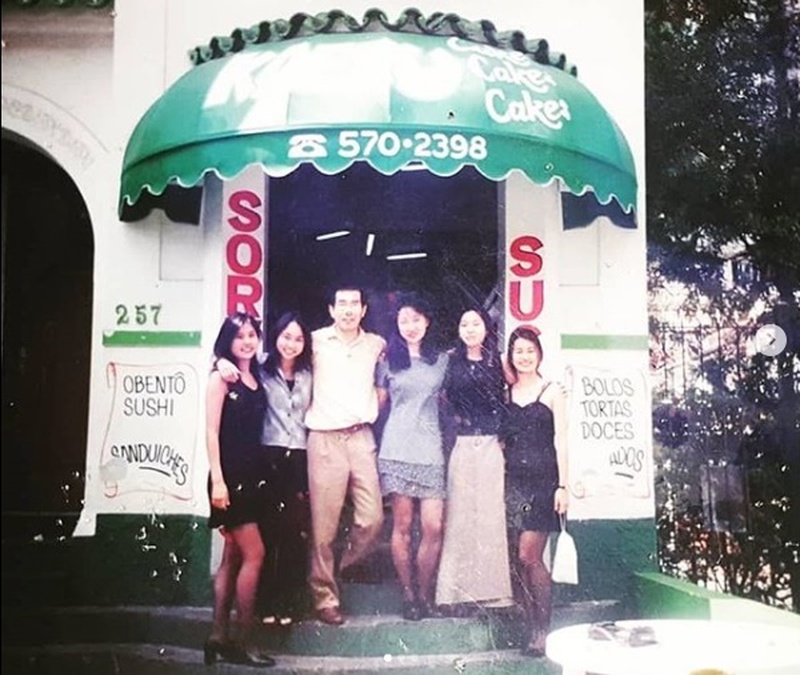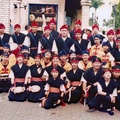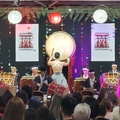Anyone who passes by Rua Estela, in the Paraíso neighborhood, in São Paulo, might not imagine that a house with a green facade holds 26 years of history. Located at number 257, the property gives life to Kaeru Foods, a small business opened by the Nisei couple Masao and Ana Ishii.
Since 2019, they have had their son Rafael, 35 years old, to manage the savory and sweets store. A third-generation descendant, he began to have a connection with Japanese culture when he was a child through the food his mother made, which was heavily influenced by nihonshoku (“traditional Japanese cuisine”).
Throughout her life, her mother – born in Porecatu, Paraná – participated in karaoke. “It is quite rooted in the cultural aspect.” In addition to speaking Japanese like her husband and children, she knows how to read and write.
Today the family does not cultivate any typical traditional customs. “We already lead a very Brazilian life.” [laughs] On the other hand, they preserve values such as respect for elders and others, and the feeling of gratitude, whether for good or bad everyday events.
A joint project
Born in Valparaíso, São Paulo, Masao worked as a lawyer until the early 1990s in the automobile market, in large automakers, until he retired. Ana was a flight attendant and had a clothing boutique. However, he stopped working to take care of his two children.
At the time, I was responding to some requests from friends and neighbors. “I remember my mother would stay at home, making sweets and cakes”, he says. “They ended up combining business with pleasure and they had the idea of opening this store together.” Soon, in August 1994, they opened Kaeru Cakes, after investing in equipment and renovations.
Who is who
Dona Ana “is the great masterchef ”. “My father is much more communicative than my mother. He is in the most commercial part, sales, and is responsible for administration”, he explains. “Kaeru's heart is my mother, because it's really thanks to the products we have [all with her recipe] that Kaeru continues to this day, it has a certain reputation among those who have tried it. But Kaeru is like my father, because he is on the front line serving everyone.”
“He likes to talk, more than anything. He wants to tell his stories, over and over again, just to start a conversation”, he comments. And he continues: “he’s very curious, you know? As he wants to be nice, he asks each person a questionnaire [asking what they do, where they live, their family, whether they are dating or single] . [laughs] Anyone who knows him already thinks it’s very characteristic of him.”
It's natural to imagine that Rafael started working at the store when he grew up. However, it wasn't exactly an interest he had when he was little. “I saw it as an obligation. Child, right? I just kept complaining and grumbling about this help”, he confesses. “Because my parents were here 24 hours a day, so I had no one to stay with. I wanted to watch television, but every time my parents asked for my help.”
Some time later, when I was in college, I wanted to work in the field of training, Advertising. Until, in May 2019, he decided to permanently work on Kaeru and start operating with app deliveries. “My role is to open up the digital channel a little, because my parents – as they are old – don’t have much affinity with technology.” The advertiser, on the contrary, says that he identifies with the tech world and that is why he wanted to help his father and mother, including with the company's marketing.
From cakes to savory snacks
“My mother’s dream was to have a candy store-cafeteria. But the spot they [parents] chose, in front of Colégio Bandeirantes, didn't allow them much time to follow that idea”, says the Sansei from São Paulo. The biggest audience are students, 90 to 95% of the clientele, who “go for break, hungry, they don't want to eat just sweets”.
So, “to adapt, my mother started making savory snacks that started to sell more than cakes and sweets. Until eventually Kaeru became much better known for its savory snacks – and especially its coxinha – than for its cakes.” Therefore, the name no longer referred to just the confectionery and gained a broader meaning when it changed to Kaeru Foods.
In family
Because of their daily coexistence, the trio fights “a lot”. Perhaps it is inevitable, especially due to the intimacy of the family.
“My mother is the nicest and she has plenty of beatings. My father and I are far from being calm people”, reveals Rafael. And it justifies why the father gets angry more easily. “He already has the age factor: he becomes more stubborn and wants to fight even more with everyone.” “But I think I took after him a lot, a lot, I can see that” [laughs] , he says. Because he states that, sometimes, he also gets stressed with people close to him.
Living culture
An important way to contribute to perpetuating Japanese culture among new generations is through food. Something that always left and still leaves Ishii unsatisfied “as a descendant of Japanese people is the issue of many Brazilians looking at Japanese cuisine such as sushi, sashimi, temaki”. For this reason, “I think it's really cool and important not only for us, but also for everyone who offers food that is different from this part, to better showcase the diversity of Japanese cuisine”. Sansei declares himself “very pleased” to promote karê pan , which is “a different Japanese food”. [laughter]
Furthermore, Rafael highlights creation, common traditional education among descendants and the issue of respect. However, at the same time, “there could be a balance”. “Because Japanese, on the one hand, can be very polite, express a lot of gratitude. On the other hand, he is very introverted, which I think is bad. As I was born and raised here in Brazil, the people are super warm, super extroverted, super friendly – I identify a lot with that today. It could have this mix, of also being fun, friendly, warm.”
© 2020 Tatiana Maebuchi






